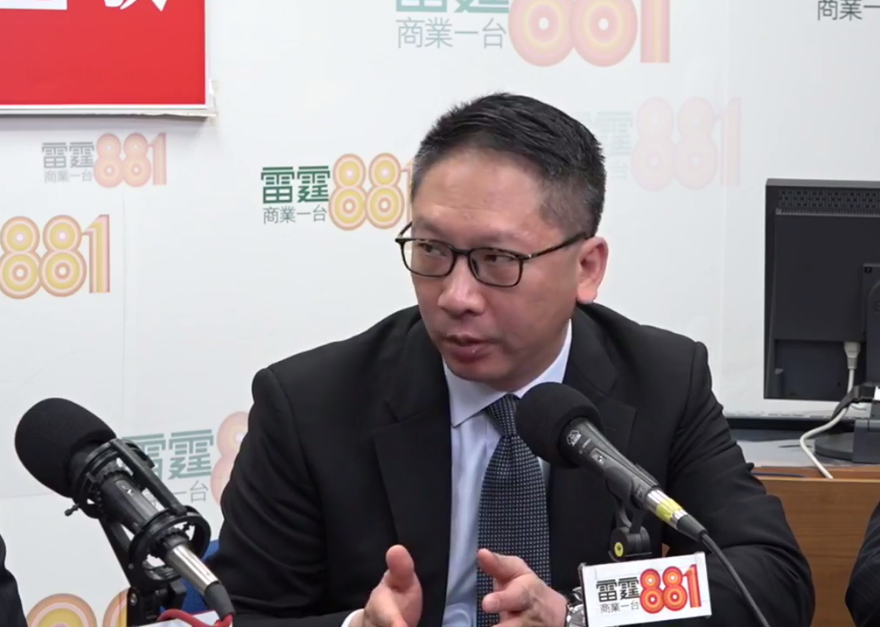Secretary for Justice Rimsky Yuen has compared the joint checkpoint arrangement for the Express Rail Link to a landlord taking back part of a property rented to a tenant.
Areas of the site are to be leased to the Beijing government so that Chinese authorities can enforce mainland laws in parts of the West Kowloon Terminus. The government says a mainland immigration checkpoint must be located in Hong Kong for convenience.
Article 18 of the Basic Law, Hong Kong’s de facto constitution, stipulates that mainland laws cannot be implemented in Hong Kong. But if the government’s proposal is implemented, the leased areas would no longer legally be regarded as Hong Kong territory.

On a Commercial Radio programme on Wednesday, Yuen cited Basic Law Article 7, which stipulates that land and natural resources within Hong Kong is state property, and the Hong Kong government is responsible for their management and lease.
Yuen compared Beijing to a landlord and Hong Kong to a tenant while explaining the lease arrangement for the West Kowloon terminus.
“The landlord rented a house to me and then discovered there was not enough [space] for him to use, so he asked me: ‘hey, can you rent a room back to me?’” he said. “This is within his rights.”
“I don’t see that there is any problem, legally speaking,” he added.

Edward Yiu, an ex-lawmaker who was also an associate professor in geography, said Yuen’s analogy was “seriously inaccurate.”
“If a tenant allows the landlord to freely enter and leave the rented area, the act will contravene the legal requirements of the [tenant’s] right to exclusive possession,” he said. “The lease will be immediately voided as a result.”
Yiu warned that if Beijing can decide at any time to announce that parts of Hong Kong are legally no longer part of its territory, land property ownership will be disrupted and it may pose a huge economic risk.
“This blurring of boundaries poses a huge risk for investors, as they can no longer use the traditional common law system to judge whether to make investments,” he said.
Chinese rule of law
University of Hong Kong legal scholar Eric Cheung said the National People’s Congress has the right to decide what the law is, but it was a “sad phenomenon.”

“We are heading towards [China’s] concept of rule of law,” he said on a RTHK programme. “China’s constitution has many articles protecting human rights – [it is] even better than the Hong Kong Basic Law – but the mainland decides how they are interpreted, so there has not been a single case of the constitution being violated.”
He said that in the past, Hong Kong was confident in the implementation of the Basic Law, because a common law system was in place.
“But now it seems we cannot use the Basic Law to restrain the central government’s power – we can only rely on politics, or on the central government to exercise self-restraint – there is less legal protection,” he said.
‘Basic Law is gone’
Former lawmaker Martin Lee, who was a member of the Basic Law drafting committee, said the government’s proposal violated the Sino-British Joint Declaration, which the Basic Law was based on.
He said when Britain handed Hong Kong over to China, Beijing was supposed to implement “One Country, Two Systems” throughout all of Hong Kong without excluding any parts.
He added that the joint checkpoint arrangement does more damage to the Basic Law than an interpretation by Beijing: “It is like the whole Basic Law is gone.”
